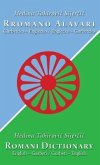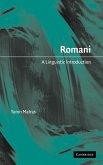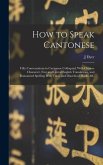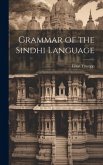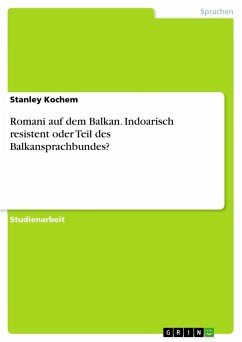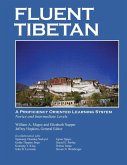"Romani in Britain" is the first academic, empirically-based study dedicated to the unique speech form of English Romanies/Gypsies, often called Anglo-Romani. The book contributes to studies of language endangerment and death; studies of "secret" and "in-group" languages; and mixed language research. Readers will learn about the history of Romani in Britain, its relationship with European Romani, the process of its abandonment as an everyday minority language, patterns of "selective replication" of Romani-derived structures, and attitudes toward the language and its revival among English Gypsies today. Yaron Matras is a leading expert on the Romani language, and his book interviews individuals from across the country.
Romani is one of Britain's oldest and most established minority languages. Brought to the country by Romani immigrants from continental Europe in the sixteenth century or even earlier, it was spoken in its old, inflected form as a family and community language until the second half of the nineteenth century, when it yielded to English. But even after its decline as the everyday language of English and Welsh Gypsies, Romani continues to survive in the form of a vocabulary that is used to express an 'emotive mode' of communication among group members. This book examines British Romani in its historical context and in its present-day form, drawing on recordings and interviews with speakers. It documents the Romani vocabulary and its usage patterns in conversation, offering insight into the processes of language death and language revitalization. The volume includes an extensive lexicon of Angloromani as a helpful reference.
Hinweis: Dieser Artikel kann nur an eine deutsche Lieferadresse ausgeliefert werden.
Romani is one of Britain's oldest and most established minority languages. Brought to the country by Romani immigrants from continental Europe in the sixteenth century or even earlier, it was spoken in its old, inflected form as a family and community language until the second half of the nineteenth century, when it yielded to English. But even after its decline as the everyday language of English and Welsh Gypsies, Romani continues to survive in the form of a vocabulary that is used to express an 'emotive mode' of communication among group members. This book examines British Romani in its historical context and in its present-day form, drawing on recordings and interviews with speakers. It documents the Romani vocabulary and its usage patterns in conversation, offering insight into the processes of language death and language revitalization. The volume includes an extensive lexicon of Angloromani as a helpful reference.
Hinweis: Dieser Artikel kann nur an eine deutsche Lieferadresse ausgeliefert werden.


